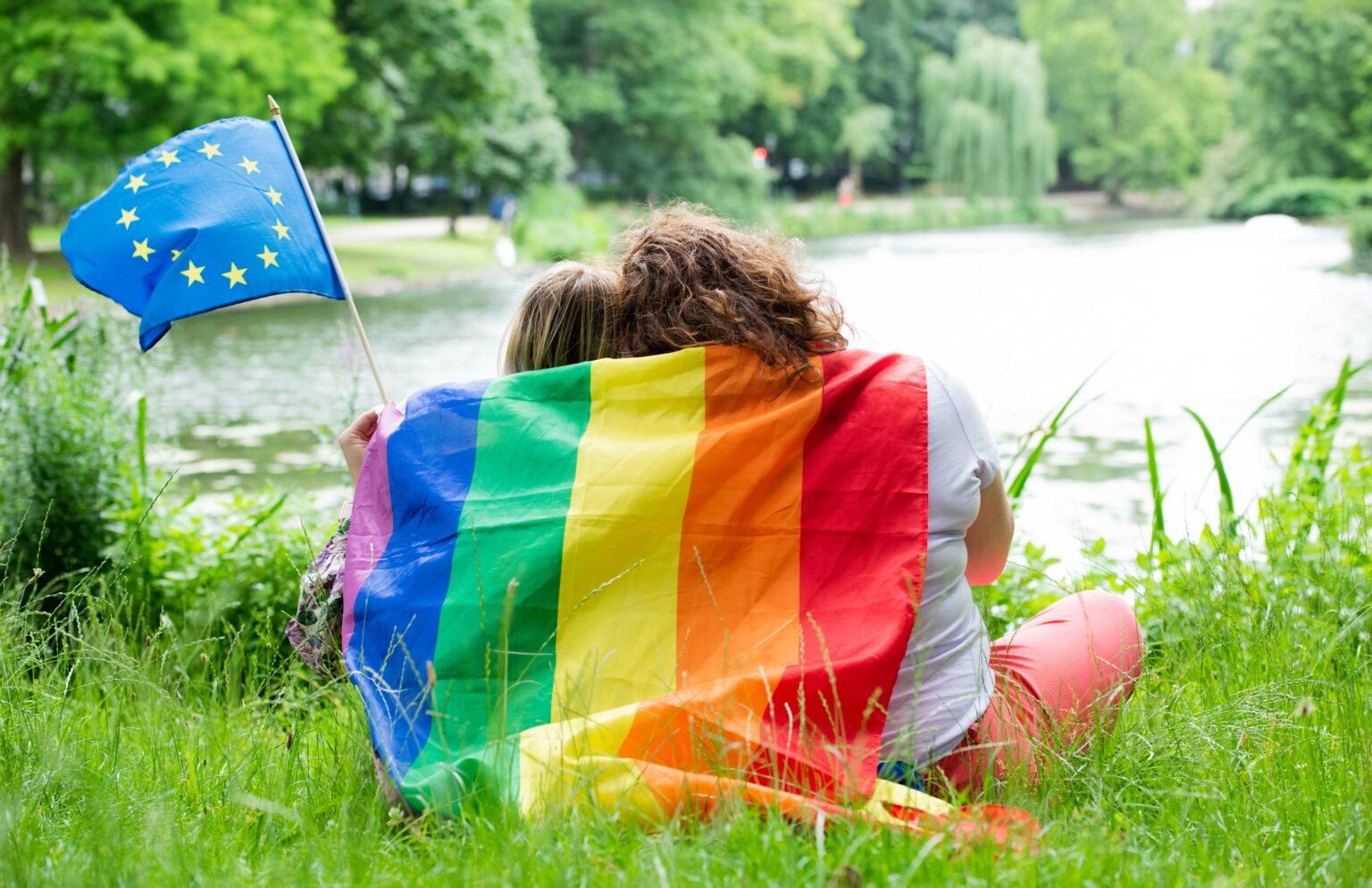Activists on Accession to the EU

Although achieving EU membership can take several years, even decades, the accession process can already have a positive impact in LGBTI people in a candidate country. We speak to activists in the latest candidates, Ukraine and Moldova, and from Montenegro, which has been a candidate since 2010.
Since its foundation, the EU family has kept its doors open to new members who share the same values. They must be committed to apply, support and promote the EU’s democratic principles and practices in their territories and overseas. Once the request of a European state to join the EU has been agreed by current EU member states, the accession process begins. The benefits of joining are multiple, including access to billions of EU funding, visa free access to EU countries, and Free movement of labour, goods, services and capital.
During the process, the candidate country must satisfy a number of political and economic criteria as well as administrative and institutional capacity.
These criteria include respect for the human rights of LGBTI people. In our latest podcast at The Frontline we spoke to LGBTI activists in Ukraine and Moldova, the latest countries to have been granted candidate status, and in Montenegro, which has been a candidate member since 2010.
Lenny Emson, Ukraine
Lenny is the Director of KyivPride and a board member of Transgender Europe. Earlier this year, shortly after Russia invaded Ukraine in late February, the country applied for membership of the EU and it was granted candidate status just a few months later, along with Moldova. Lenny says the accession process “brings a bit of hope” to LGBTI people in a country that is still battling against Putin’s invasion.
“In practice this could mean the adoption of marriage equality and anti-hate legislation. Right now, if a person in a same-sex relationship gets hurt in the battlefield, their partner will not have the right to make medical decisions. This is why marriage equality in Ukraine is one of the priorities for LGBTI activists at the moment and the EU candidate status is pushing it up in the political agenda.~
Before the war started, anti-hate legislation to protect LGBTI people from biased-motivated crime was already in the makings. According to Lenny, its adoption would would be gaining a “right we’ve been fighting for in the five past years”.
Now more than ever, LGBTI activists advocate for the protection of sexual orientation and gender identity grounds as “anti-LGBTI groups that existed before the war now feel pretty much okay,” as Lenny explains. “Since the war started over 100 cases of LGBTI-phobic crimes have been reported to civil society organisations.”
Anastasia Danilova, Moldova
Anastasia is the director of GENDERDOC-M and a board member of ILGA-Europe. Just a few days after Ukraine’s request in early March 2022, Moldova applied for EU membership. The country also became candidate member in June.
“Definitely it’s a great opportunity for LGBTI people in the country,”. Anastasia says. There have been already some positive changes linked to the EU accession, like the ratification of the Istanbul Convention, which entered into force in the country in May, and the adoption of anti-hate crime legislation which includes sexual orientation and gender identity as protected grounds.
“Implementation will be a huge issue, but it’s already a big step. Until now, because of lack of legislation, crimes against LGBTI people were not registered in the official statistics.”
For Moldovans, the EU accession talks are also a security matter as pro-Russian parties try to destabilise the progressive government. “EU enlargement is the only chance for the future, for LGBTI people to enjoy equality,” Anastasia explains.
Danijel Kalezić, Montenegro
Danijel worked for years as the Executive Director of Queer Montenegro , but has now become the Co-director of ERA, the LGBTI Equal Rights Association. 12 years after Montenegro was granted EU candidate status, Danijel’s insights on the process and its impact are different to those from Lenny and Anastasia.
He sees a gap between “the paper” and the practice. “In many countries the EU enlargement is been used to improve the human rights framework. Montenegro is a good example of this. This year the country made it to the top-10 of the Rainbow Map and Index and has made major legislative changes in recent years to protect the rights of LGBTI people, including same-sex unions. However, if we look to what’s happening in real life, [the change] is not followed.”
This is because there are no communication campaigns following the legislative changes. “To enjoy all the rights that we have now on paper, we need to be able to change hearts and minds. And that change is not going as fast as the change of the legal framework,” Danijel says.
The EU candidate status can be “an amazing boost for the human rights of LGBTI people, to start conversations, but I would like to see more pressure from the EU on the government and stakeholders to talk about the importance of this process.”
Danijel points out to the need of speaking of human rights not only important to become a member of the EU, but above all, for all citizens of the country.
Danijel, Anastasia and Lenny are all guests on our latest two-part podcast episode exploring the effect of the EU accession process on candidate countries, alongside former member of European Parliament, Marije Cornelissen, who has worked extensively on the accession process, and ILGA-Europe’s advocacy director, Katrin Hugendubel, to talk about our long history of working alongside candidate countries to advocate for LGBTI rights and equality.